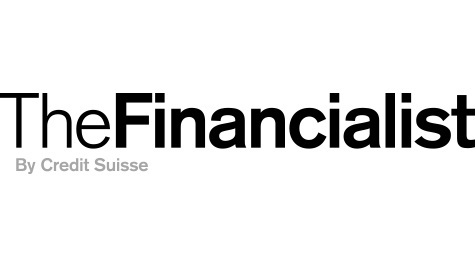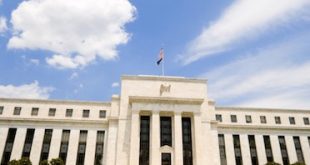Interest rates in developed economies have been declining for the past 40 years. At this point, 60 percent of global GDP is generated in countries that have negative or near-zero interest rates. Germany and Switzerland have both issued bonds that yield negative returns to investors, and a handful of European corporations have done the same. The yield curve has also flattened significantly in recent years, making long-term debt relatively more affordable. In other words, it’s cheaper than ever...
Read More »Blades Whirring Over Japan?
Japanese central bankers are not in an enviable position. The year-over-year growth rate of the country’s core consumer price index was -0.4 percent in May, marking the third consecutive monthly decline—and this after three years of Abenomics. Brexit certainly hasn’t helped. The yen has strengthened from ¥121 to the dollar in February 2016 to ¥105 in late July. That’s had the effect of reducing import prices, but it has also put downward pressure on inflation. Japan economists on...
Read More »Rocky Ratings in China
Around the world, central banks continue to cut interest rates and buy bonds to stimulate their sluggish economies. China is no exception to the monetary policy trend, with the People’s Bank of China cutting rates seven times since late 2014. But here’s the twist: Whereas for most corporates, borrowing costs have been falling in lockstep with central bank moves, a recent spike in defaults has left investors in Chinese corporate bonds on edge. At a time when the cost of money has...
Read More »Brexit and Brakes
And so it begins. Even before the Brexit vote, corporate profits in the U.K. were already under pressure from a combination of sluggish global growth and rising wages. But now, several weeks after referendum, business confidence in the U.K. is officially cratering. Credit Suisse’s Global Markets team expects corporate pessimism to ultimately translate into reduced investment and hiring, and the combination of rising unemployment and a weaker pound to squeeze household income. With uncertainty...
Read More »A Longer Wait for the Fed
The Federal Reserve is expected to keep monetary policy unchanged over the next few months as the central bank continues to assess the underlying strength of the U.S. economy, especially after the Brexit vote raised concerns that a potential slowdown in the U.K. economy could have a significant spillover effect globally. Credit Suisse’s Global Markets team believes that the vote has, in fact, exacerbated some tendencies within the Fed that were in place long before Britain’s June 23...
Read More »2016 FinTech Innovation Lab Mentees
Each year, Credit Suisse mentors a handful of fintech startups in New York, London, Dublin and Hong Kong as part of the FinTech Innovation Lab. The companies we select for mentoring all deliver innovative technologies with real potential to improve the way our bank operates and serves its clients. In this video, meet the five NYC fintech startups that we mentored in Spring 2016. They include Untapt, AlphaPoint, TREX, ForwardLane and 51Maps. For more information on the FinTech Innovation Lab...
Read More »Asian Policy Amid Brexit Angst
For Asia’s export-driven economies, last month’s Brexit vote could rub salt in a nagging wound. China’s slowdown has already hampered export sectors in countries that count the Middle Kingdom as their largest trading partner. While a Brexit-based recession that is limited to the United Kingdom would have a minimal direct impact on the region — average export exposure to the U.K. from non-Japan Asia is about 0.9 percent of GDP — a downturn that spreads to Europe would inflict...
Read More »Highlights of the Credit Suisse Global Megatrends Conference 2016 (Part 2)
Credit Suisse held its fourth Global Megatrends Conference in Singapore with 16 speakers, including leaders in the business, academia, and economic research fields, discussing The Megatrends of Demographics, Multipolar World and Sustainability -- major economic, social and political forces that shape the way people live and how business is conducted globally. More than 500 participants, including select clients and guests of the bank, benefitted from insights for creating long-term and...
Read More »Frontier Markets: Asian Countries Are on the Move
By one measure of economic success, Asia’s largest frontier markets rank below most of their global peers. Pakistan, beset by social welfare challenges such as illiteracy, has a per-capita GDP of $1,300. Vietnam, which didn’t begin to transition to a market economy until the late 1980s, does better at $2,100. By comparison, Africa’s largest frontier markets, Nigeria and Morocco, each have per-capita GDPs of $3,300, while those in Europe and the Middle East range between...
Read More »A Turning Point for Frontier Markets
China has an outsize influence on Asia’s frontier markets – whether as an infrastructure investor or an end-market for exporters. Recently, however, frontier markets are taking on a different role in relation to their larger neighbor – that of competitors. Hear what Chate Benchavitvalai, Head of Frontier Market Research and Vietnam Strategy at Credit Suisse, had to say at the Bank’s 2016 Asian Investment Conference about the changing nature of the relationship between China and frontier...
Read More » Credit Suisse
Credit Suisse










